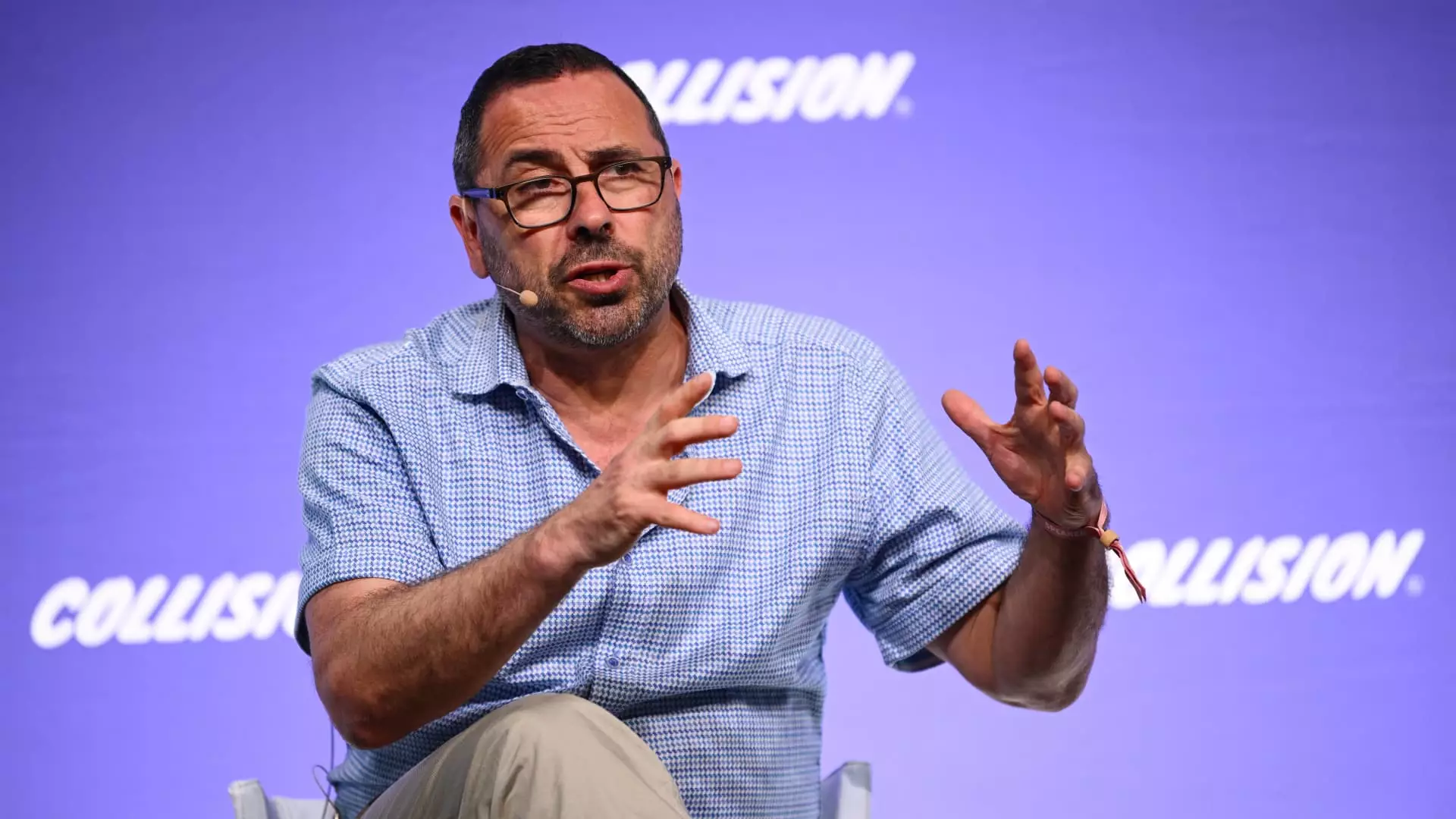Cerebras Technologies, a chipmaker specializing in artificial intelligence (AI), is on the verge of attempting an initial public offering (IPO) in the U.S., an event that could set a significant precedent for the tech landscape. As a potential trailblazer, Cerebras aims to capitalize on the thriving demand for AI technologies, especially as industry leader Nvidia now boasts a staggering market valuation of $3.3 trillion. However, despite Cerebras’ innovative edge in AI infrastructures, its reliance on a singular Middle Eastern client poses substantial risks that cannot be overlooked. Assessing these dynamics reveals not only the potential for growth but also the inherent vulnerabilities that could impede this ambitious endeavor.
Founded in 2016, Cerebras has made commendable strides in the AI processor space, launching its first chip in 2019 and claiming notable advancements in speed and efficiency compared to Nvidia’s Graphics Processing Units (GPUs). By 2023, the company showcased substantial business growth, with revenue surging more than threefold to $78.7 million. The company’s projections indicate further acceleration, citing an agreement for $1.43 billion in system sales, which presents a glowing picture of opportunity.
However, the enthusiasm surrounding Cerebras is tempered by caution. The stated selling figures, while impressive on the face, are largely attributed to a single client—G42, based in Abu Dhabi, which accounted for a staggering 87% of the company’s revenue in the first half of the year. Such a disproportionate reliance on one customer raises significant red flags for investors and analysts alike. Without a diversified client base, Cerebras remains vulnerable to the whims of G42, making its revenue stream precarious, especially in the event of any changes in partnership dynamics or business objectives.
The crux of Cerebras’ potential IPO hurdles lies in the nuanced relationship with G42. Not only is G42 the primary source of revenue, but it is also positioned to become a major investor through a planned acquisition of a $335 million stake. The implications of this intertwining relationship amplify scrutiny concerning potential foreign influence in a technology sector essential to national security. Legislators’ concerns about G42’s historical ties to China, particularly amid growing geopolitical tensions, compound the skepticism surrounding Cerebras’ IPO aspirations.
Despite the assurances provided by Cerebras regarding compliance with the Committee on Foreign Investment in the U.S. (CFIUS), the review process introduces uncertainty. Reports indicate that internal deliberations within U.S. financial institutions, particularly investment banks typically involved in tech IPOs, have led them to distance themselves from the Cerebras deal due to these risks of customer concentration and geopolitical entanglements.
The allure of the AI sector, particularly in the wake of Nvidia’s success, has undeniably captured investor interest; yet, Cerebras’ bid to attract this attention is fraught with obstacles. With major banks like Goldman Sachs and Morgan Stanley opting out of the underwriting process, Cerebras appears to be sidelined by the very institutional support typically crucial for a successful IPO. The involvement of Citigroup and Barclays, while significant, lacks the prestige that comes with the top-tier investment banks, potentially hampering investor confidence.
Moreover, the backdrop of generally suppressed valuations for smaller tech stocks raises additional concerns. Following prolonged periods of limited IPO activity since late 2021, investor appetite remains cautious. Cerebras will need to reassure potential backers that its strategic plans can not only weather existing challenges but also deliver on lofty growth promises in an increasingly competitive landscape.
As Cerebras anticipates its IPO, the balance of potential reward against significant risk is prominent. The company’s ambitious plans to diversify its client base, reaching out to sectors such as healthcare and biotechnology, could pave the way for broader revenue sources. Nonetheless, investors will be keeping a keen eye on developments, particularly regulatory outcomes concerning G42’s stake and the company’s ability to attract new clients.
Ultimately, whether Cerebras can operate effectively to mitigate dependency on one customer while navigating the intricacies of investor sentiment will dictate its trajectory in the IPO arena. The overarching excitement surrounding AI infrastructure remains, but how Cerebras presents its narrative in light of its vulnerabilities could make all the difference in attracting necessary investments for a successful public debut.

